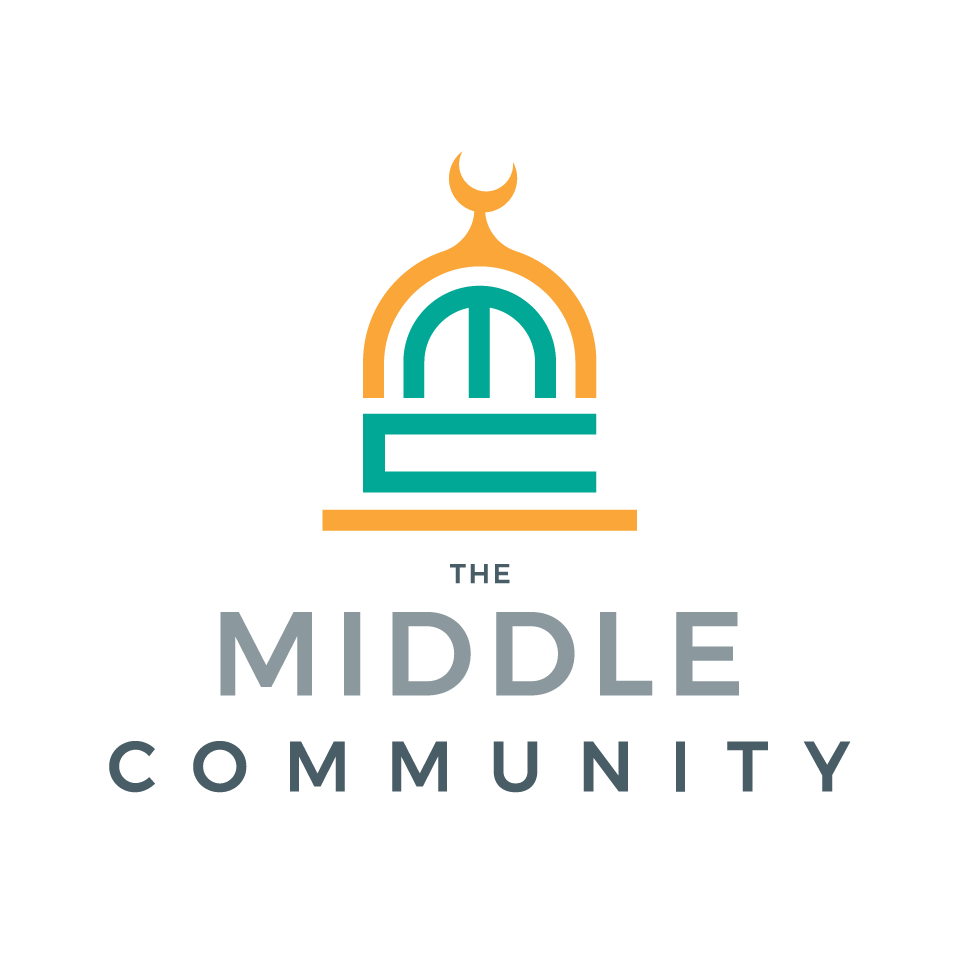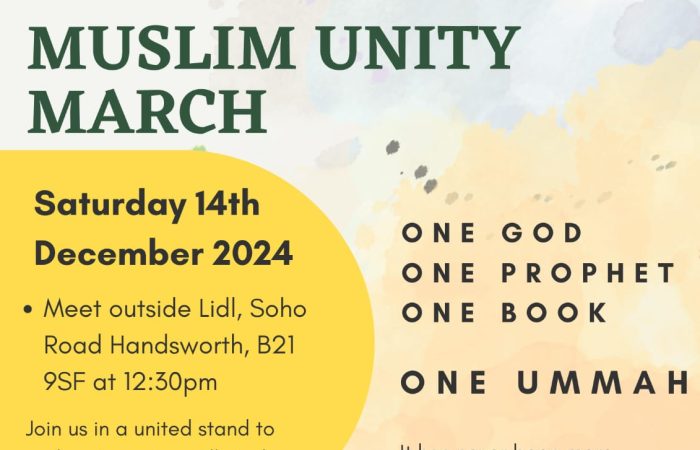The issue of Unity between Muslims has never been more important. Centuries of divisions have left us in a position of weakness, where those who identity with a sect are many but those who identity with each other are few. It has reached a point where the name “Muslim” is almost a secondary thought in the minds of many. In place of brotherhood, we regard each other with suspicion, and in place of greetings of peace, we vilify each other.
Now, the most pressing question is not how we got here – this has already been discussed at length – but how do we move forwards? Is there anything in the Book of Allah (SWT) or the example of the Messenger (SAW) that will guide us towards a solution to the state we find our Ummah in today?
In this article, we will examine the sources in search of an answer:
The Qur’anic foundation of Unity
We find in Surah al-Anbiyah that Allah recognises one Ummah:
“Indeed this, your ummah is one ummah, and I am your Lord, so worship Me” [Quran, 21:92]
This means every Muslim is part of the same whole, and as such we are connected to each other.
We read in Surah Aale Imran:
“And hold firmly to the rope of Allah all together and do not become divided.” (3:103)
From this Verse it becomes apparent that this emphasis on Muslim unity is not the product of modern times from any philosopher or activist, but is in fact a Divine Command which forms the very foundations of our Religion. Holding fast to the Rope of Allah, means adherence to his Guidance and this is not meant to be an individual activity but a collective effort on the level of an entire society.
We also read in Surah Hujurat:
“The believers are but brothers, so make settlement between your brothers. And fear Allah that you may receive mercy.” (49:10)
There are three key ideas here that should be highlighted. The first is that Allah (SWT) regards the Believers as actual family, and not just in the metaphorical sense. He (SWT) purposefully uses the word “Ikhwa” rather than “Ikhwan”, to make this clear. Secondly, He (SWT) acknowledges that differences may arise, but then immediately commands that we must actively strive towards reaching settlements of these difference – which shows us the importance of the issue. Thirdly, He links this to Taqwa, which can understood as God-Consciousness or piety, and makes it the means of attaining Divine Mercy.
Unity as explained by the Prophet (SAW)
The Prophet (SAW) has spoken extensively about the rights and responsibilities members of the community have to each other, and he has continuously emphasised the concept of togetherness in all matters. For example he (SAW) has said:
“Verily, the believers are like a structure, each part strengthening the other,” and the Prophet clasped his fingers together.
And he (SAW) has said:
“The believers in their mutual kindness, compassion, and sympathy are just like one body. When one of the limbs suffers, the whole body responds to it with wakefulness and fever.”
And he has further emphasised the duty we have to each other:
“He is not a believer whose stomach is filled while his neighbour goes hungry.”
Unity in Practice
Islamic unity manifests in several practical ways:
Congregational Prayer
The five daily prayers, especially the Friday prayer (Jumu’ah), bring us together regularly, reinforcing our spiritual and social ties to each other. The fact that we all turn towards the same Qiblah is incredibly powerful.
Fasting
Every year Muslims all over the world fast in the month of Ramadhan. This brings us together in many ways. Our hunger acts as a reminder for us of the plight of those who have less than us so we increase in compassion for them. And when we gather for our meals at the end of the day, we are more likely to share food with our neighbours, or to invite guests to our homes or gather together in the mosque. All of this strengthens the relationship we have with our families and the wider community.
Zakat and Sadaqah
One of our basic obligations as Muslims is to give up part of the wealth we have been entrusted with by Allah for the sake of benefitting others who have less or who are in need. This duty when put into practice encourages a sense of social responsibility, which is essential for a healthy community.
Hajj
The annual pilgrimage to Makkah represents the ultimate display of Muslim unity, where millions gather wearing the same simple garments, performing the same rituals, regardless of their ethnic origin or worldly status.
Challenges to Unity
Despite these clear directives, the Muslim ummah faces several challenges to unity:
Tribalism
Sometimes when people prioritise their ethnic or tribal origin or their lineage over their shared values or personal efforts, these things, become a barrier to unity. This is why Allah (SWT) has reminded us:
“O mankind, indeed We have created you from male and female and made you peoples and tribes that you may know one another. Indeed, the most noble of you in the sight of Allah is the most righteous of you. Indeed, Allah is Knowing and Acquainted.” [49:13]
National or cultural barriers
The Prophet of Mercy (SAW) has addressed this also in his well-known final sermon:
“All mankind is from Adam and Eve, an Arab has no superiority over a non-Arab nor a non-Arab has any superiority over an Arab; also a White person has no superiority over a Black person, nor a Black person has any superiority over a White person except by piety and good action. Learn that every Muslim is a brother to every Muslim and that the Muslims constitute one brotherhood.”
Sectarian differences
Although scholarly differences are not in themselves the driving force of disunity, there is the tendency of some ignorant people to inflame tensions between people by means of these. That is why it is important to keep in mind our similarities and to return back to the sources of our unity rather than our disunity. Allah (SWT) has said:
“O you who believe! obey Allah and obey the Messenger and those in authority from among you; then if you quarrel about anything, refer it to Allah and the Messenger, if you believe in Allah and the last day; this is better and very good in the end.” [4:59]
Political conflicts
History is full of conflict and injustices and this is unfortunately true between Muslims. Allah (SWT) has provided Guidance on handling such situations, and His Messenger has exemplified this in his own life.
“And if two parties of the believers quarrel, make peace between them; but if one of them acts wrongfully towards the other, fight that which acts wrongfully until it returns to Allah’s command; then if it returns, make peace between them with justice and act equitably; surely Allah loves those who act equitably.” [49:9]
This was in fact put to the test in the time of the Prophet (SAW) himself, when the two major clans of Madinah – Al-Aws and Al-Khazraj – were on the verge of fighting one another once again, even though they had both become Muslims. Allah (SWT) sent down Revelation which reminded them of how things were before Islam and how He has shown favour to them.
“And hold fast by the covenant of Allah all together and be not disunited, and remember the favour of Allah on you when you were enemies, then He united your hearts so by His favour you became brethren; and you were on the brink of a pit of fire, then He saved you from it, thus does Allah make clear to you His communications that you may follow the right way.” [3:103]
When they heard this, their hearts softened towards each other and they put their differences aside.
Path Forward
To strengthen Islamic unity, Muslims can:
- Focus on Common Ground:
“And from among you there should be a party who invite to good and enjoin what is right and forbid the wrong, and these it is that shall be successful. And do not be like the ones who became divided and differed after the clear proofs had come to them. And those will have a great punishment.” [3:104-105]
- Avoid unnecessary argumentative especially in sensitive times or settings:
As the Quran states: “And obey Allah and His Messenger, and do not dispute and [thus] lose courage and [then] your strength would depart.” (8:46)
- Practice Tolerance: Embrace the diversity within Islamic thought while maintaining core principles.
- Build Bridges: Actively work to understand and connect with Muslims from different backgrounds and schools of thought. Give each other gifts as the Prophet (SAW) has said this will increase the love we have for each other.
- Promote Education: Foster understanding of different Islamic traditions and interpretations while emphasising shared fundamentals.
- Unity through action: Work together with other Muslims for matters of mutual benefit. This will increase the respect we have for each other.

